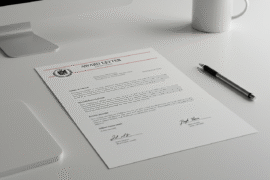This article may contain references to products or services from one or more of our advertisers or partners. We may receive compensation when you click on links to those products or services. Nonetheless, our opinions are our own.
The information presented in this article is accurate to the best of our knowledge at the time of publication. However, information is subject to change, and no guarantees are made about the continued accuracy or completeness of this content after its publication date.
- Introduction
- Make a Budget That Works and Save
- Rethink Your Investments Before It’s Too Late
- Try a Side Hustle That Fits Your Life
- Use Catch-Up Contributions to Pad Your Retirement Fund
- Downsize Your Home and Reduce Expenses
- Keep Learning About Money Topics
- Final Thoughts
- Frequently Asked Questions
- Recommended Reads
Introduction
Dreaming of retiring sooner? You’re not alone. The thought of quitting the 9-to-5 grind and finally doing what you want, traveling, hobbies, or just sleeping in sounds pretty great. But money worries often hold people back. The good news? You don’t need to win the lottery. A few smart moves can help you shave off a couple of years from your work life. Here’s how.
Make a Budget That Works and Save
Start by knowing where your money goes. Like, really knowing. Write it all down: rent, snacks, apps you forgot you subscribed to. Then:
- Cut dead weight: Ditch streaming services or subscriptions you barely use.
- Try zero-based budgeting: Every dollar gets a job and gets rent, savings, and groceries done.
- Build an emergency fund: Aim for 3 to 6 months of living costs.
- Auto-save: Set your bank to move money to savings as soon as you get paid.
Track how you’re doing each month. Here’s a simple example:
| Month | Goal | Actual |
|---|---|---|
| Jan | $500 | $600 |
| Feb | $500 | $450 |
| Mar | $500 | $500 |
Rethink Your Investments Before It’s Too Late
Don’t just throw money at the stock market and hope. As you get closer to retiring, safety matters more than wild growth. Think about this:
- Keep some cash handy: It helps you stay calm when markets dip.
- Look into dividend stocks: They pay you money just for owning them.
- Add some bonds: They’re boring but stable.
Here’s how different investments stack up:
| Type | Returns | Risk |
|---|---|---|
| Stocks | High | High |
| Mutual Funds | Medium | Medium |
| Bonds | Low-Medium | Low |
| Cash | Low | Very Low |
Try a Side Hustle That Fits Your Life
No need to start a new business empire. Just find something that makes extra money without burning you out:
- Consult or freelance: Use the skills you already have.
- Tutor online: Teach stuff you know to students who need help.
- Make and sell stuff: Crafts, art, homemade food, whatever you’re into.
- Rent out property: If you’ve got extra space or a second place, use it.
- Get a part-time gig: Something chill, maybe at a local shop or café.
Here’s a quick look:
| Gig | Time Needed | Money You Might Make |
|---|---|---|
| Consulting | 10–20 hrs/wk | $50–$150/hr |
| Tutoring | 5–15 hrs/wk | $20–$60/hr |
| Craft Sales | Varies | $500–$2,000+/month |
| Rentals | 10–30 hrs/mo | ~$1,000/month |
| Part-time Job | 15–30 hrs/wk | $12–$25/hr |
Voted "Best Overall Budgeting App" by Forbes and WSJ
Monarch Money helps you budget, track spending, set goals, and plan your financial future—all in one app.
Get 50% OFF your first year with code MONARCHVIP
Use Catch-Up Contributions to Pad Your Retirement Fund
Once you hit 50, the rules change; you’re allowed to put more money into retirement accounts than before. It’s called “catch-up,” and it adds up fast.
- 401(k): Extra $7,500 a year
- IRA: Extra $1,000 a year
- SIMPLE IRA: Add $3,500 more
Let’s say you do that for 10 years with a decent return. You could end up with over $130,000 more.
| Years Left | Extra Saved | Grows To (6% return) |
|---|---|---|
| 5 | $37,500 | $48,288 |
| 10 | $75,000 | $136,768 |
| 15 | $112,500 | $295,535 |
Downsize Your Home and Reduce Expenses
Big homes cost more to run. Think: higher bills, taxes, and repairs. Selling your place and moving into something smaller can give you cash and peace of mind. Here’s what downsizing might save you monthly:
| Expense | Big House | Smaller Home |
|---|---|---|
| Mortgage | $1,500 | $1,000 |
| Property Tax | $300 | $150 |
| Maintenance | $200 | $100 |
| Total | $2,000 | $1,250 |
Keep Learning About Money Topics
You don’t need to become a finance nerd, but knowing the basics helps. Spend a little time each week reading or listening to something smart:
- Podcasts: Great while driving or doing chores.
- Online classes: Try Coursera or Udemy for personal finance.
- Books: Look for clear, simple guides by trusted authors.
The more you know, the better decisions you’ll make.
Final Thoughts
Retiring two years early isn’t a fantasy; it’s a goal that’s totally within reach with the right steps. Budgeting wisely, adjusting your investments, exploring part-time income, and staying educated can accelerate your path to financial freedom. Even small shifts can lead to big gains over time. With focus and consistency, you can take back those extra years and enjoy them your way.
Frequently Asked Questions
How much do I need to retire early?
To estimate how much you need to retire early, calculate your expected yearly expenses and multiply by 25. This gives a rough idea of your target savings. If you plan to retire two years earlier than expected, add a buffer for those extra years. It’s a simplified approach but a solid starting point for planning.
Is it worth using catch-up contributions even if I’m close to retiring?
Yes, catch-up contributions are still worth it. Even a few extra years of higher savings can compound into a meaningful amount. With consistent investment and modest returns, the impact can be surprisingly large. It’s one of the easiest ways to boost your retirement funds late in the game.
Does downsizing help?
Absolutely. Downsizing often reduces monthly expenses like mortgage payments, taxes, and maintenance. It can also provide a lump sum of cash from home equity. Many retirees find smaller homes easier to manage and more aligned with their lifestyle goals.
Can older folks do side hustles?
Yes, side hustles are accessible to older adults. Many part-time or freelance opportunities allow you to work flexibly and at your own pace. Whether it’s consulting, tutoring, or selling crafts, there’s usually a way to monetize existing skills or passions. It is important to pick something enjoyable and manageable.
How often should I check my investments?
Checking your investments at least once a year is a good habit. Review more frequently if your life circumstances change or market conditions shift. Rebalancing your portfolio helps maintain your risk tolerance and retirement timeline. Staying informed helps you stay confident in your plan.

Reviewed and edited by Albert Fang.
See a typo or want to suggest an edit/revision to the content? Use the contact us form to provide feedback.
At FangWallet, we value editorial integrity and open collaboration in curating quality content for readers to enjoy. Much appreciated for the assist.
Did you like our article and find it insightful? We encourage sharing the article link with family and friends to benefit as well - better yet, sharing on social media. Thank you for the support! 🍉
Article Title: Smart Strategies to Retire Early
https://fangwallet.com/2025/07/31/smart-strategies-to-retire-early/The FangWallet Promise
FangWallet is an editorially independent resource - founded on breaking down challenging financial concepts for anyone to understand since 2014. While we adhere to editorial integrity, note that this post may contain references to products from our partners.
The FangWallet promise is always to have your best interest in mind and be transparent and honest about the financial picture.
Become an Insider

Subscribe to get a free daily budget planner printable to help get your money on track!
Make passive money the right way. No spam.
Editorial Disclaimer: The editorial content on this page is not provided by any of the companies mentioned. The opinions expressed here are the author's alone.
The content of this website is for informational purposes only and does not represent investment advice, or an offer or solicitation to buy or sell any security, investment, or product. Investors are encouraged to do their own due diligence, and, if necessary, consult professional advising before making any investment decisions. Investing involves a high degree of risk, and financial losses may occur including the potential loss of principal.
Source Citation References:
+ Inspo
There are no additional citations or references to note for this article at this time.











































